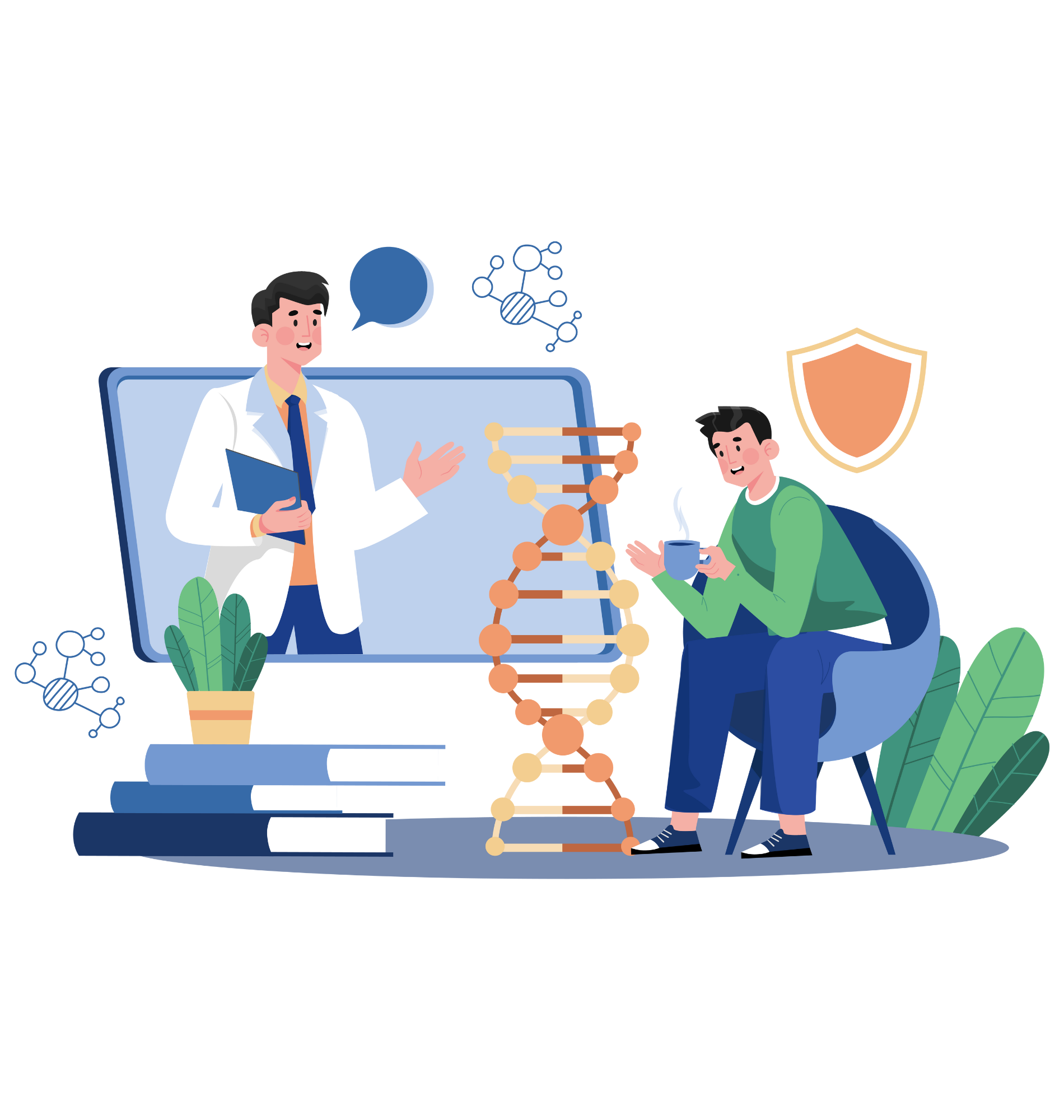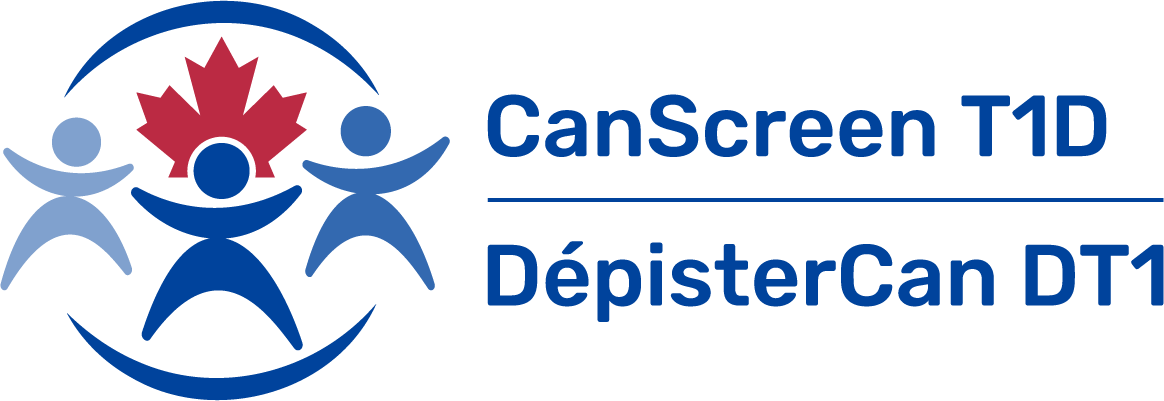What Is This Project About?
We are creating helpful resources and programs to support families and individuals who test positive for a higher risk of Type 1 Diabetes (T1D) through genetic screening. This will help them better understand their results, what it means for their health, and what next steps to take.
What Will The Project Achieve?
- Create a Pre-Test Genetic Counselling Leaflet: We will design an easy-to-understand leaflet that explains the genetic testing process and what people can expect from the results.
- Develop a Genetic Counselling Report: A research report will be created to summarize important genetic information for those who screen as high risk.
- Host a Genetic Counselling Webinar: We will offer a webinar session to guide families who receive positive genetic screening results and provide them with the information they need.
- Create an Online Resource: An online platform will provide information and support for families who screen positive for T1D risk, giving them the tools to make informed decisions.
- Offer Educational Sessions for Families: We will provide educational sessions to help families who test positive for autoantibodies (Ab) understand their results and the next steps in managing their T1D risk.

Why Is This Important?
Genetic testing can give important information about someone’s risk of developing T1D, but the results can be difficult to understand. Genetic counsellors are trained to help people make sense of this complex information. However, many families do not have access to this support, and sometimes, miscommunication can happen when genetic tests are done without the help of a genetic counsellor.
When people receive genetic results, it is important that the information is shared in a way that makes sense to them. Everyone has different ways of understanding health information based on their culture, beliefs, and personal experiences. This is why we need to develop materials that are clear, respectful of different backgrounds, and supportive for everyone.
Currently, there are no clear guidelines or resources for counselling families who receive a T1D genetic result through newborn screening. Our project will fill this gap as part of our pilot screening program and ensure that families in Canada have access to the best possible support.
What Is The Bigger Plan?
Our project will take inspiration from successful programs in other countries, such as the UK, US, and Australia, where education sessions have already been developed for people who test positive for the risk of T1D. We will adapt these resources to fit Canada’s healthcare system, ensuring that they are culturally appropriate and effective for families in Canada.
How Will We Do It?
- Develop Counselling Materials: We will create genetic counselling materials that are culturally appropriate and understandable. These materials will be tested with feedback from families to make sure they meet their needs.
- Adapt International Educational Materials: We will look at education programs from other countries and adapt them for the communities that we identified. These programs will help families understand the results of their genetic screening and make informed decisions.
- Offer Online and Webinar Resources: Through webinars and online resources, families will have access to guidance and support, no matter where they live in Canada.
- Gather Feedback: We will collect feedback from people who have experienced genetic testing to improve the materials and ensure they are helpful.
Methods Used In This Project
A research genetic counsellor and the research team will work together to develop the first version of the genetic counselling approach for the pilot T1D screening program. Before we start building these materials, we will ask our Community Engagement Network to share their ideas and priorities regarding the content and format of the materials.
The initial materials will be based on existing practices from various areas. These include cancer genetics (the study of how inherited genes can increase the risk of certain cancers). They also include genetic counselling for psychiatric conditions (mental health disorders affecting mood, thinking, and behavior). Other areas include cardiovascular disease (health conditions affecting the heart and blood vessels) and newborn screening for metabolic or genetic diseases. Additionally, the materials will follow guidelines from organizations like the American Society for Human Genetics (ASHG) and the National Society for Genetic Counsellors (NSGC).
After the first version of these materials is created, we will ask for feedback from our Community Engagement Network, international advisory panel, and other knowledge users and collaborators. We will make sure to include a variety of perspectives, including different sexes, genders, ethnicities, and marginalized groups, to ensure the materials meet everyone’s needs.
We will analyze feedback by looking at factors like the biological sex of the child, gender identity of the parent, cultural backgrounds, and family income to make sure all families are supported. We will also collect diabetes-specific educational materials for people who screen positive for autoantibodies (Ab) from international partners and adapt them to fit Canada’s healthcare system with the help of our patient/parent partners and collaborators.
In the first year of the project, we will:
- Finalize these materials and have them translated into both French and English as well as seven other languages spoken by over 125,000 people in Canada: Mandarin, Punjabi, Spanish, Arabic, Tagalog, Persian (Farsi), and Urdu.
- Implement the materials in our pilot (trial) screening program, with an expected 300 to 500 individuals returning to receive the post-test genetic counselling webinar.
Although the webinar will be general, we will offer additional individualized counselling for families who request it. After the webinar, participants will be invited to share their thoughts through assessments and qualitative interviews (in-depth conversations aimed at understanding people’s experiences, opinions, and feelings on a specific topic), with a special focus on families from traditionally marginalized communities. Feedback on the use of educational materials for children who test positive for Ab testing will also be collected in the same way.
Conclusion
By developing these resources, we hope to make genetic testing for T1D easier to understand and less stressful for families. With culturally appropriate genetic counselling, clear educational materials, and ongoing support, families can better understand their risk and take the right steps to manage their health. This project will help build a stronger foundation for T1D screening in Canada and ensure that families receive the support they need to make informed decisions about their health.
